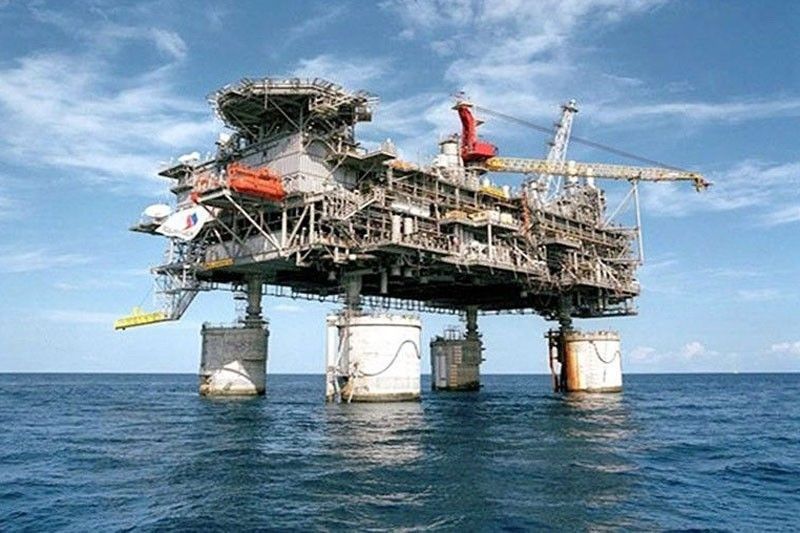Increase in world crude prices, weak peso to impact Malampaya rates — Meralco

MANILA, Philippines — Increases in global crude prices and the peso's slump will be reflected in the costs of sourcing power from the Malampaya deepwater-to-gas project, the biggest source of some power plants that supply energy to Manila Electric Co. (Meralco), according to a company official.
The power provider earlier said customers may see higher power bills in March as a higher generation cost due to multiple plant outages and a weak peso raised the overall power rate for the first time this year.
"If there is any effect in the increase in world crude oil prices, we will feel it in the Malampaya prices starting May's generation charge...Right now, we aren't experiencing it because the Malampaya price is updated every quarter. The next update is on April," Meralco Vice President and Head of Utility Economics Larry Fernandez said in an online briefing on Wednesday.
The generation charge is paid by Meralco to power suppliers.
Fernandez said the offshore Malampaya project, the country's only indigenous gas field, is largest source of supply for several power plants supplying energy to the company. Power generated from the gas field is sold in US dollars, which means that its prices can also be affected by the peso to US dollar exchange rate, he said.
This month, Meralco said the depreciation of the peso against the greenback contributed to the generation cost.
To accurately determine the power rates for April, the power firm has to wait for the billings from its suppliers for the supply month of March, according to Meralco spokesperson Joe Zaldarriaga.
Oil supply security pushed
The Philippines should focus on ensuring a steady supply of oil, local firm Phoenix Petroleum Philippines said on Thursday, after noting that the global market is currently experiencing mixed signals from suppliers in OPEC (Organization of Petroleum Exporting Countries) and China.
Back home, weekly oil price increases have registered the largest increases since the start of the year.
This week, several firms announced that gasoline rose by P3.60 per liter; diesel went up by P5.85 per liter; and kerosene climbed by P4.10 per liter.
"I think for the country, for a country like the Philippines that imports most of their products coming from overseas, I think it is important that we focus on supply security more [than] price," Phoenix Petroleum President Henry Fadullon said in an ANC Market Edge interview on Thursday.
He said the Philippines exports a "significant" amount of oil from China, which has today imposed export quotas, based on information from Chinese regulators.
"While you have OPEC members saying that they will increase supply to the market, you've got somebody sending mixed signals- China- saying that they will withhold exports. So for the Philippines...that's where the pinch happens when you try to bring in products, there is a bit of shortage," Fadullon said.
Phoenix Petroleum imports a sizeable amount of its gas oil from China.
Earlier this week, the Department of Energy (DOE) said the country is not experiencing any supply woes, but urged consumers to conserve petroleum and electricity.
Energy Secretary Alfonso Cusi previously said, however, that the country's oil prices may "suffer" if the geopolitical war between Ukraine and Russia persists.
'Positive outlook 'til year-end'
This week, another domestic oil firm Unioil Petroleum Philippines decided to implement fuel price increases in tranches whereas other companies decided to roll out the hikes in one go at the start of the week.
In an advisory on its Facebook page, the company said its retail outlets will be implementing an increase of P3.85 per liter for diesel and P2 per liter for gasoline on March 8; and a rise of P2 per liter of diesel and P1 per liter of gasoline on March 11.
"This is our own little way of empathizing with the plight of the motorists who are also bearing the impact of the sharp increases in fuel prices," Unioil Vice President for Retail Ed Pasion told Philstar.com over email on Thursday.
He admitted that the move would have a negative impact on the firm's business because in implementing the staggered increases, they absorbed the high fuel prices of last week.
"But this has been calculated already when the management made the decision to temper the increase," he added.
Pasion said Unioil is not directly affected by the price shocks partly driven by the war between Russia and Ukraine since the firm imports finished petroleum products mainly sourced from Asian countries such as Singapore, China, Korea and Japan.
He said the firm maintains its optimistic outlook for the oil industry until the end of 2022, even if demand might be affected if prices go up.
"We continue to have a positive outlook for the oil industry as the country tries its best to fully recover from the effects of the pandemic. Although we do expect demand to be slightly affected if prices do continue to move up but we trust that the govt and the private sector will work together in finding ways to alleviate the effects to the country and support our continuous recovery," Pasion said.
- Latest
- Trending































